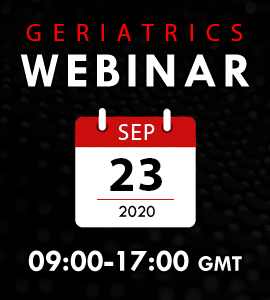
Migita M. D’cruz
National Institute of Health & Neuro Science, India
Title: Rise in the number of geriatric patients attending psychiatric emergency services in a tertiary hospital during the COVID-19 lockdown period
Biography
Biography: Migita M. D’cruz
Abstract
Introduction: Older adults are at disproportionate risk of serious disease and mortality due to the novel coronavirus (COVID-19) pandemic. Further, the global response to the lockdown has rendered older adults particularly vulnerable to loneliness and social isolation due to the physical distancing and shelter in place mandate. We hypothesized that both these factors would lead to an increase in geriatric mental health problems during the COVID-19 pandemic.
Material and Methods: We undertook a clinical audit of all geriatric patients (above 60 years of age) attending the psychiatry emergency services at a tertiary care hospital. This audit was conducted over a period of 52 days dating from the cessation of non-essential services at the hospital as part of the national response to the COVID-19 pandemic (lockdown).
We used descriptive statistics to summarize the number, age, sex, presenting complaint and diagnoses of our patients. We further compared the average number of geriatric patients attending the psychiatry emergency services in the hospital during the lockdown to that of geriatric patients attending the same in the year before the lockdown.
Results: A total of 116 geriatric patients attended the psychiatry emergency services during the lockdown period. Of these, 63 were male and 53 female. The average number of geriatric patients attending the emergency services daily during this period (µ1 2.23) was significantly higher (z 5.36, p ≤ 0.01) than the average number of patients attending the emergency services in the year preceding the lockdown (µ2 1.34).
The most common presenting complaint was agitation in the preceding weeks. The most common diagnoses were late onset schizophrenia spectrum disorders followed by major neurocognitive disorders and affective disorders.
Discussion: The COVID-19 pandemic and the global response to the same constitute life events for older adults. They may contribute to biological, psychological and social risk factors for mental health problems in older adults during this period. The increase in geriatric patients attending our emergency services, despite an increase in restrictions on mobility which act as barriers in the pathway to care, is worrying. Under stimulation in older adults during this period may contribute to an increase in agitation.

